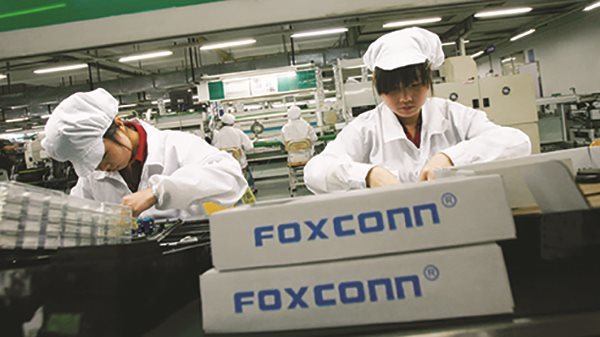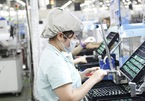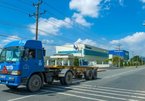The General Statistics Office (GSO) reported that the total foreign direct investment (FDI) disbursed in 2019 was $20.4 billion, an increase of 6.7 percent over 2018.

However, the noteworthy thing is that the total capital disbursed in the first 11 months of the year was only $17.6 billion, and the remaining $2.8 billion was disbursed within one month – December.
This was much higher than the amount of $1.5 billion disbursed in the previous months.
However, the worry is that the newly registered projects in 2019 had low average capital of $5 million.
Meanwhile, foreign investors spent $15.5 billion in 2019 to buy into Vietnamese enterprises. The total foreign indirect investment (FII) in the first 11 months of the year was $11.2 billion only, and the remaining $4.3 billion was spent within one month alone.
As such, a total amount of $7.1 billion in both FDI and FII was disbursed in the last month of 2019 alone.
|
The General Statistics Office (GSO) reported that the total foreign direct investment (FDI) disbursed in 2019 was $20.4 billion, an increase of 6.7 percent over 2018.
|
Thoi Bao Kinh Te Sai Gon quoted some commercial banks as reporting that the banks sold over $3 billion to the State Bank of Vietnam (SBV) in December out of the total amount of $20 billion SBV purchased in the whole year of 2019.
This was a surprise to experts, because investors tend to stop disbursement activities in the last days of fiscal year and consult with shareholders about business plans for the next years.
Meanwhile, on HOSE (HCM City Stock Exchange), HNX (Hanoi Stock Exchange) and UpCom, foreigners sold more than bought by VND1 trillion in December (approximately $45 million).
Therefore, the figure of $7.1 billion remains an unknown.
The result of the trade war?
The consequence of the pumping of a large amount of money into the economy in a short time is inflation.
This is the lesson Vietnam has learnt from what happened in 2007-2008.
If reviewing what happened in late 2018, no one would think that SBV would be able to buy up to $20 billion in 2019. This was the time when the US-China trade war entered a strained period and the global economy was facing risk of recession.
The opinions varied about the impact of the trade war on Vietnam’s financial market, monetary market and import/export activities.
Some economists thought that Vietnam will not get any benefits from the war, but would bear negative impact because Chinese goods, which find it difficult to enter the US market, would try to penetrate Vietnam.
However, the fact that SBV could buy $20 billion to increase the forex reserves to $80 billion and that Vietnam had a trade surplus of $10 billion showed that the trade war has had a positive impact on Vietnam.
Kim Chi

Can Vietnam absorb increased FDI capital flow?
The investment capital keeps flowing to Vietnam, bringing concerns about the country's capability to absorb such a high level of capital resources.

Vietnam's ten-month FDI capital contributions at $10.8 billion
Capital contributions and share purchases by foreign investors up in first ten months while new projects and capital fall, MPI report shows.
 In December 2019 alone, $7.1 billion worth of foreign capital was disbursed.
In December 2019 alone, $7.1 billion worth of foreign capital was disbursed.